In this land of the Delta Blues, Covid zero is no longer king
There is no guarantee that NSW will be able to put the Delta genie back in the bottle. How we live with this virus is a painful discussion we must have.
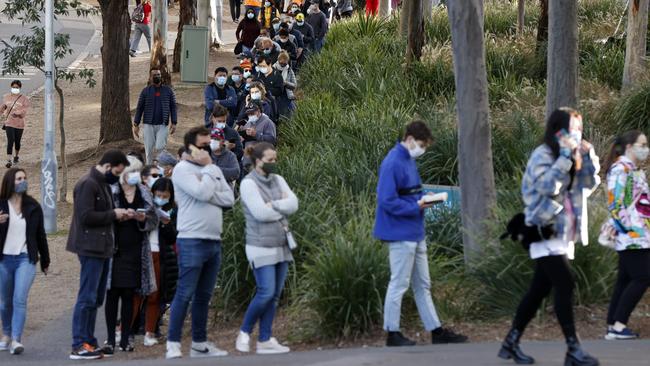
Australia must simultaneously plot a path to opening up and living with some version of Covid-19, but keep the virus away until we are adequately vaccinated. Every part of our national life is up for grabs.
The national strategy is to keep the virus out, get vaccinated, then open up again. But international experience is telling us that even mass vaccination does not solve all our problems, nor lead us back to a pre-Covid life.
Nick Coatsworth, the former deputy chief medical officer, tells Inquirer we could be dealing with serious Covid trouble for years.
But the crisis in NSW is immediate. Premier Gladys Berejiklian expects serious restrictions in her state until at least October. Incidentally, one of the strange features of Covid is how the pre-modern realities, in this case the natural seasons, reassert themselves. October is late spring. Covid revels in winter.
Policy was moving rapidly this week, as the NSW crisis is also a national crisis. Berejiklian demanded more of the nation’s Pfizer doses. Other premiers turned her down flat. The Australian Medical Association joined with Scott Morrison to ask the Australian Technical Advisory Group on Immunisation to recommend the AstraZeneca vaccine for younger people in Sydney. For we have oceans of AZ, and much less Pfizer.
The Therapeutic Goods Administration has now approved Covid vaccinations for children as young as 12.
NSW stands on the very brink of disaster. Its test-and-trace hit squads were champions, gold medallists, against the original variant. The Alpha variant was faster and more dangerous, but the NSW teams just got faster and bigger themselves.
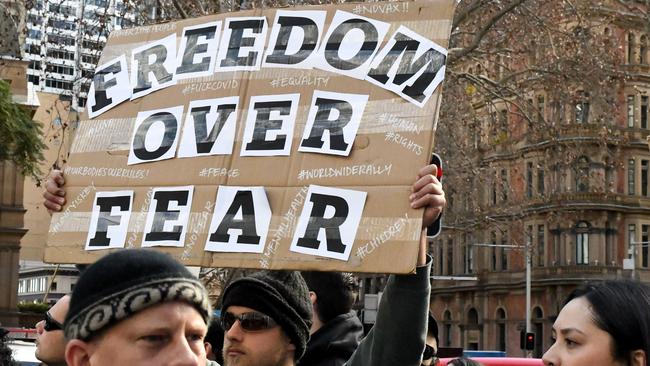
They scorned the virus: is that the best you can do? And they lorded it over other states. We don’t lock down in NSW.
Then they met Delta, turbocharged, faster than lightning. It beats all-comers so far.
Now, NSW, and Australia, are potentially at a tipping point. On Friday, there were 136 new Covid cases in NSW. Only 53 were fully isolating while infectious. Another 53 were in the community the whole time, and another 30 part of the time. That’s maybe 83 people who could have infected others. If they have on average 10 contacts each that’s more than 800 people contact tracers have to track down.
And that’s just one day.
The 53 who were active in the community compare with just 20-odd a few days ago.
But here’s another ominous indicator. On Friday, NSW had 137 Covid patients in hospital, 32 in intensive care, with 14 of those on ventilators. More than half the people in intensive care are aged under 60.
Here’s the kicker: apart from all its other tricks, Delta attacks younger people more than the earlier variants did.
But if it’s more contagious, is it at least less deadly? Professor Raina MacIntyre, the head of Biosecurity Program at the Kirby Institute, tells Inquirer: “Delta is more serious. Studies from Canada and the UK suggest it’s twice as likely to put you in hospital, in ICU and kill you.”
Other epidemiologists might be a bit more provisional in their judgments, but no one makes a serious case that it’s any less deadly than previous strains.
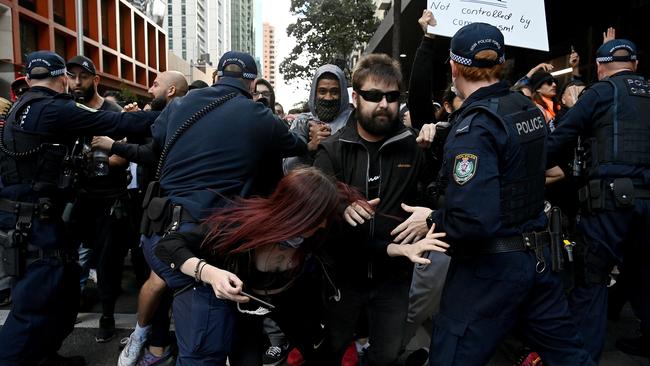
The total number of new cases in NSW, more than 1700 since mid-June, is still small by international standards. But Australia has very few people who have experienced Covid so we have no natural immunity.
And still only 15 per cent of eligible adults are fully vaccinated. So we are immensely vulnerable. Our health systems could still be severely tested.
What we are desperately trying for now is for most adults to have at least their first jab by October. Berejiklian thinks we could then lead more normal lives. But one jab is vastly less protective than two shots.
MacIntyre thinks that if Delta is the dominant variant, then we need 80 per cent adult vaccination before we can safely open up. Coatsworth also nominates the figure of 80 per cent, but he argues that with a 50 per cent overall adult vaccination rate, we should be able to give more freedoms to the fully vaccinated.
“Younger adult Australians need a pathway,” Coatsworth tells Inquirer, “when we get to 50 per cent of the entire relevant adult population vaccinated, with age groups of 60-plus nearly fully vaccinated, then you would still have restrictions, but greater liberties would be offered to the fully vaccinated.”
Professor Senjaya Senenayake of the Australian National University, like Coatsworth and others, says that when we do relax, it should be gradual: “Rather than the whole economy opening up at a certain point, it’s better to give those who have been vaccinated more freedoms.”
This week, I undertook lengthy interviews with nearly a dozen of the most distinguished epidemiologists and infectious disease experts in Australia. All of them are keen to get Australia opened up as soon as possible. Not one thought the UK approach of declaring a “freedom day” when all restrictions end was a good approach.
It’s always difficult to communicate a nuanced message to the public, one with positives and negatives. Professor Jodie McVernon of the Doherty Institute tells me that it has been psychologically damaging to focus forever on getting back to our pre-Covid life.
She thinks it striking that next door to Australia, in Indonesia, human beings can die because of a lack of medical oxygen while in Australia a certain sub-set in denial can still claim that Covid is just the flu. At the same time, she believes we can cope with Covid.
Similarly, Coatsworth says the idea of Covid zero “has become addictive”.
Australia did brilliantly well compared with those countries we think most culturally similar to us, such as the US, Britain and the nations of Europe. Health Minister Greg Hunt tells Inquirer that if Australia had Covid deaths at the OECD average, there would now be 30,000 Australian Covid fatalities. If we had death rates comparable to the US and Britain, there would be 45,000 Australian dead.
Neither of these nations did nothing about Covid. They both did a lot and they still got mass fatalities, more than 600,000 dead in the US. If we had let it rip, if we had decided to “live with the virus” from the start, it’s likely we would have many more than 45,000 Covid deaths by now.
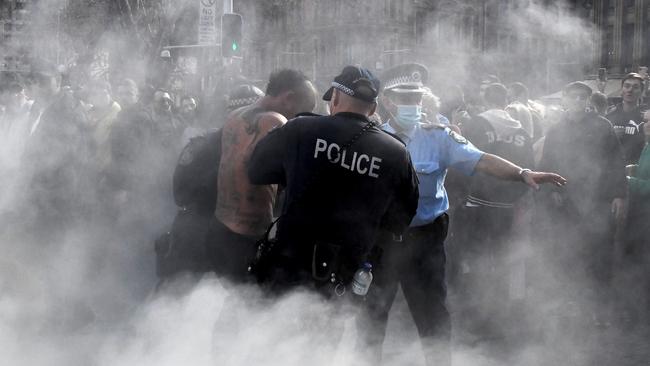
But now the US and the UK, and numerous other nations, have got a lot further ahead in vaccination rates than Australia. The US has about 50 per cent of its population fully vaccinated and 66 per cent have had at least one shot. The UK has done even better, with 70 per cent having had one dose and 55 per cent two doses. Israel is even more highly vaccinated than that, with 85 per cent having had one shot and 58 per cent fully vaccinated.
Australian policy is designed to catch up with those rates so that we can avoid the terrible economic, social and psychological disruption of repeated and lengthy lockdowns.
However, the international data does not suggest Australia has an easy road ahead, even when we are vaccinated. If we are in a race to get vaccinated before Delta takes hold, those nations are now in a war between their vaccines and Delta. The vaccines are doing well in some places, but nowhere is there a knockout victory and the virus may have lots more tricks ahead for us. As Coatsworth observes: “These (coronaviruses) are among the simplest and cleverest particles we know.”
Neither the Morrison government, nor the premiers, really deserve criticism for having to chop and change so often. Their enemy is incredibly dynamic. It has happened to almost every government on the face of the earth that at one time or another the virus has made it look foolish, and has forced a course correction on it.
Singapore some weeks ago decided not to focus on Covid case numbers any more, but to report hospitalisations and deaths. So it opened up. This led to a surge in cases and it reimposed restrictions. That was never on its road map.
The Netherlands, of all the mainland European nations culturally the most similar to Australia, is even more telling. It opened up at the end of June. At that stage two thirds of its adult population had had one jab, and some 43 per cent were fully vaccinated. That’s a pretty credible level of vaccination to take a risk on.
But it made the mistake of opening up all at once. This included massive dance parties, and other classic superspreader events. Infections rose 500 per cent in early July as a result. Where there had been 500 cases a day in June there were on some days in July 11,000 cases a day. The authorities again faced the prospect of overwhelming their health system. Prime Minister Mark Rutte apologised for the early opening and reinstituted a range of restrictions.
The US is now experiencing the “pandemic of the unvaccinated”. Almost all its recent deaths are among the unvaccinated. It’s averaging 40,000 new cases a day, although there have been days of 60,000 new cases. Delta is now more than 80 per cent of the new cases, but Delta has not yet, in the US, completed its general work of displacing all previous Covid variants. Hospitalisations and deaths are starting to rise again in the US, although they are still a long way behind where they were at the virus peak.
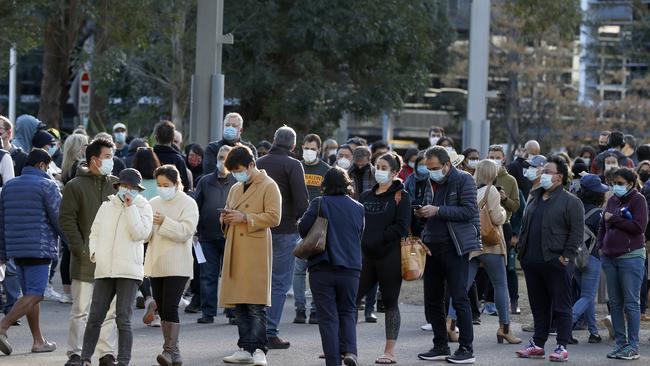
The US has also pioneered what we might term the peculiar paradox of late stage vaccine hesitancy. Donald Trump deserves credit for developing vaccines at warp speed. Joe Biden deserves credit for getting them into people’s arms with similar urgency. But whereas when the virus was raging at its worst across the US, everyone wanted a vaccine, now that’s not the case. In April, the US was administering three million vaccines a day, now it’s barely 500,000 a day.
Yet there is still this huge unvaccinated population experiencing a new pandemic which is only likely to get worse. As soon as the virus seemed to be under control a large segment of the population reverted to their anti-vax prejudices. The states and smaller locations which are least vaccinated are also the areas most resistant to wearing masks and undertaking sensible social distancing.
Some states and cities – Hawaii, Los Angeles, Las Vegas – have mask mandates. Other states, in a misguided application of civil liberties, are making it illegal for employers to require employees to be vaccinated in certain roles or for patrons and customers to be vaccinated in order to access certain services.
Yet employer vaccine mandates are very effective. The Houston Methodist hospital system insisted on all its 26,000 employees getting vaccinated and lost only 150 employees along the way.
France and several other European nations are making a double-vaccination certificate compulsory to undertake certain activities. Israel is an equally perplexing case. It had 10,000 cases a day in January, then down to 10 a day in June, when vaccinations were combined with social restrictions. It lifted restrictions and now has about 800 cases a day. Most of those are vaccinated.
That doesn’t mean vaccines are failing. Most Israelis are vaccinated, but vaccines, we know, are not 100 per cent effective so most cases now are of vaccinated people. But before vaccination, 4 per cent of infections became seriously ill. That is now down to about 1.5 per cent.
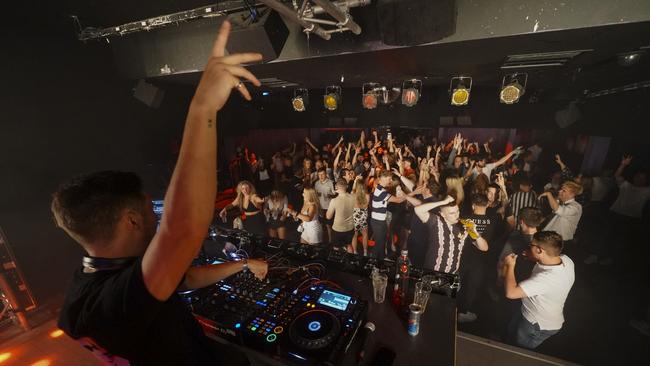
Some Israeli research indicates a falling effectiveness for even the Pfizer vaccine over time. But this research has been widely challenged as being based on very small numbers and very particular contexts. Overall, Israel is a good news story for vaccines, especially Pfizer. There’s no doubt that Pfizer is a better vaccine than AstraZeneca, though AZ is effective and it is infinitely better than nothing.
But as MacIntyre observes: “Israel used all Pfizer. They are seeing much less disease than the UK. The UK vaccination rate is lower and they used the less effective AstraZeneca vaccine.”
The UK is seeing a surge of cases, but at this stage much less death and hospitalisation than before. The Johnson government looks as though it already regrets lifting all restrictions at once. It is left projecting contradictory messages – embrace your freedom and go wild, but be cautious, take sensible measures and if you come in contact with someone who has Covid go instantly into isolation.
Australia cannot persist forever in zero Covid through isolation, followed by long bouts of lockdown. As McVernon says, “Fortress Australia cannot be permanent”.
But even when we are vaccinated, if we do open up, we will have to accept at least some hundreds of Covid deaths a year, probably at least on the level of influenza deaths. Doing that is not devaluing life if we give everyone who wants it a vaccination, and everyone who gets sick good medical treatment.
But will premiers who have ridden to electoral glory on the basis of Covid zero financed by Canberra accept such deaths?
This is a painful national discussion we cannot avoid.


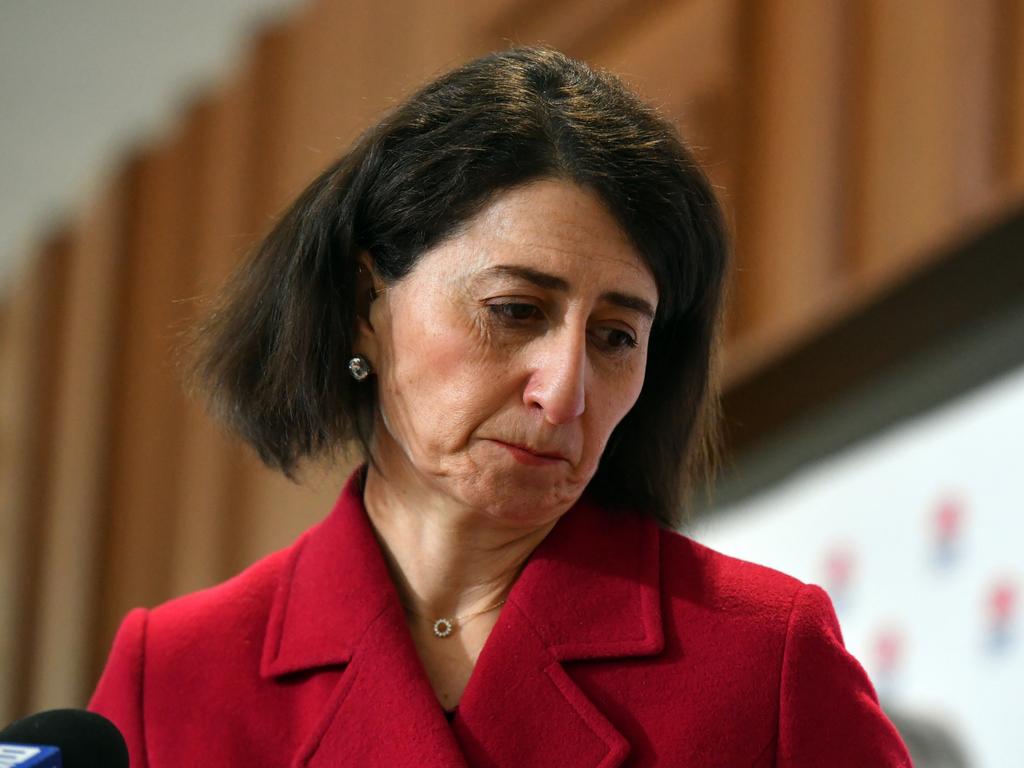
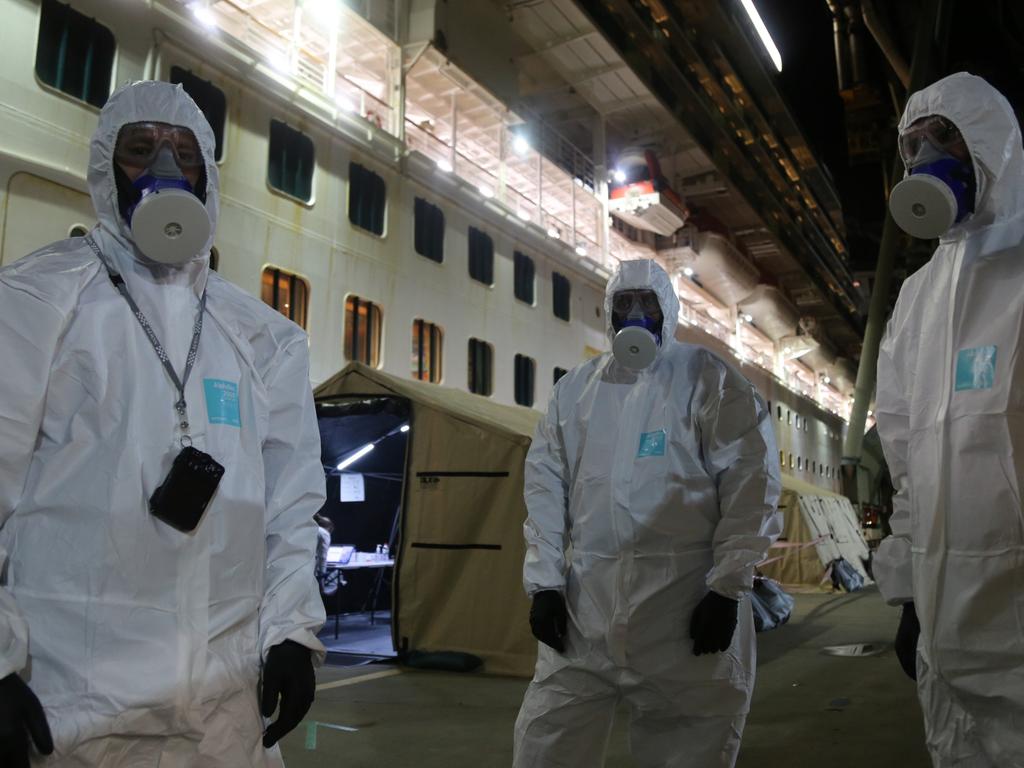
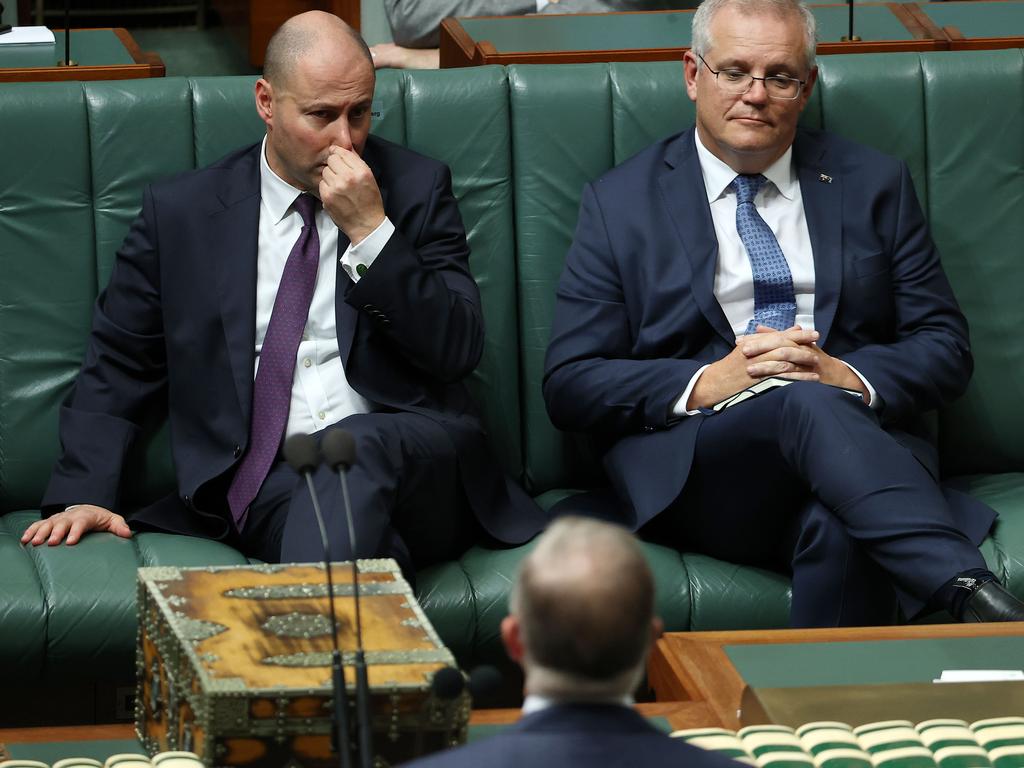
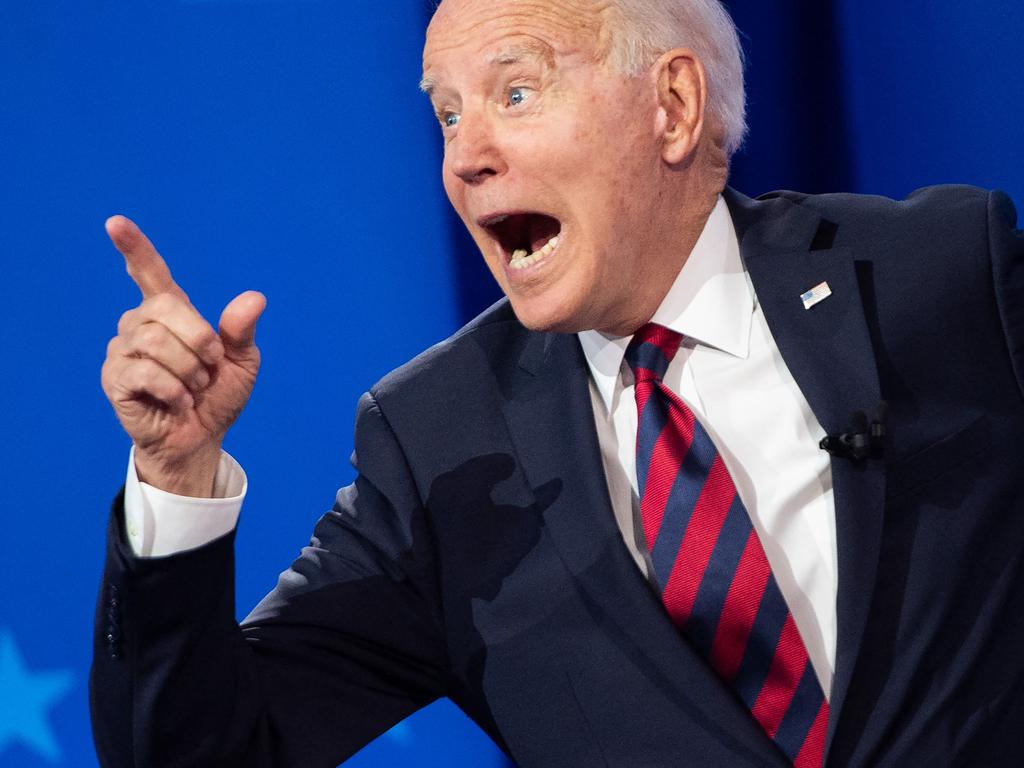


Australia is in a desperate national race against the Delta strain of Covid-19. There is no guarantee that NSW will be able to succeed in putting the Delta genie back in the bottle. The outbreak in our most populous state is now a national emergency.